As the coronavirus spreads and fear grows, people are taking an abundance of precautions to keep from contracting it.
Some of these are practical: working from home, washing hands, avoiding crowds. Others are pointless and might even be dangerous.
Here are 10 myths about the coronavirus that have been debunked by the World Health Organization.
Myth – Cold can kill the Coronavirus
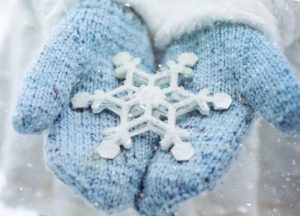
Cold can kill Corona Virus
There is no reason to believe cold weather can kill the new coronavirus or other diseases. The normal human body temperature remains around 97.7 F to to 98.6 F regardless of the external temperature or weather.
Myth – Coronavirus can be transmitted through mosquito bites
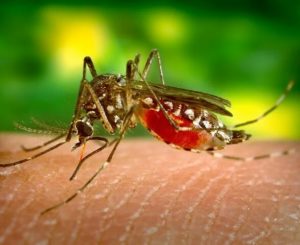
Mosquito bite
This is the South, after all, and those blood suckers will be hungry soon. However, WHO says, to date there has been no information or evidence to suggest the new coronavirus could be transmitted by mosquitoes. It is a respiratory virus that spreads “primarily through droplets generated when an infected person coughs or sneezes, or through droplets of saliva or discharge from the nose.”
Myth – Spraying alcohol or chlorine all over your body will kill the Coronavirus
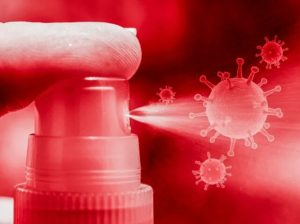
Spraying alcohol
Spraying alcohol or chlorine all over your body will not kill viruses that have already entered your body. Not only that, but these substances can be harmful to your mucous membranes (not to mention your clothes). Both alcohol and chlorine disinfect surfaces, but they need to be used correctly.
Myth – Rinsing your nose with saline will thwart the new virus
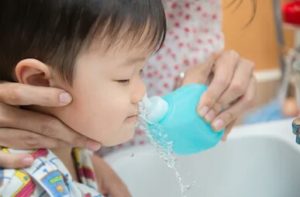
Rinsing your nose with saline
There is no evidence rinsing the nose with saline has protected people from infection with the new coronavirus. There is limited evidence it can help people recover more quickly from the common cold, but it has not been shown to prevent respiratory infections.
Myth – Eating garlic can help prevent infection
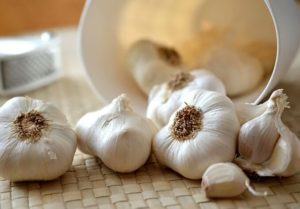
Eating garlic
Garlic has some antimicrobial properties. However, there is no evidence from the current outbreak that eating garlic has protected people from the new coronavirus.
Myth – Taking a hot bath can prevent the new coronavirus disease
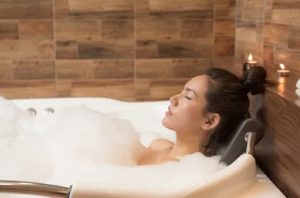
Taking a hot bath
Taking a hot bath will not prevent you from catching COVID-19. Your normal body temperature remains around 36.5°C to 37°C, regardless of the temperature of your bath or shower. Actually, taking a hot bath with extremely hot water can be harmful, as it can burn you. The best way to protect yourself against COVID-19 is by frequently cleaning your hands. By doing this you eliminate viruses that may be on your hands and avoid infection that could occur by then touching your eyes, mouth, and nose.
Myth – Thermal scanner can detect Coronavirus
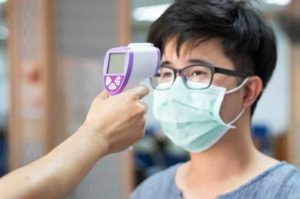
Thermal scanner
Thermal scanners are effective in detecting people who have developed a fever (i.e. have a higher than normal body temperature) because of infection with the new coronavirus.
However, they cannot detect people who are infected but are not yet sick with fever. This is because it takes between 2 and 10 days before people who are infected become sick and develop a fever.
Myth – Eating chicken in any form can lead to the contraction of COVID-19
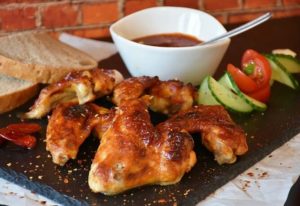
Eating chicken
With the sales of chicken and mutton going down due to the Coronavirus scare, it is jackfruit that is emerging as an acceptable alternative. The jackfruit, in fact, is now higher priced (Rs 120 per kilogram) than chicken which is selling at Rs 80 per kilogram due to poor demand. In fact, the Coronavirus scare has hit the poultry business in the country so badly that ministers in several states have organised chicken melas to dispel the misconception.
Myth – Home remedies will kill the Coronavirus
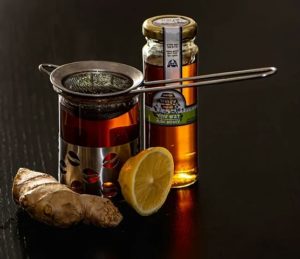
Home remedies
If you’ve read that gargling with hot tea or vinegar will kill the virus, know that that’s not true. “These home remedies might ease your symptoms to help you feel better, but they do nothing to fight the virus itself,” says Dr. Dasgupta. Another coronavirus combat tip to avoid: Spraying yourself with household disinfectants. “This is dangerous and should never be done,” Dr. Dasgupta says. “You should never ingest these products or apply them to your skin.”
Myth – Consuming cow dung and cow urine can cure Coronavirus.
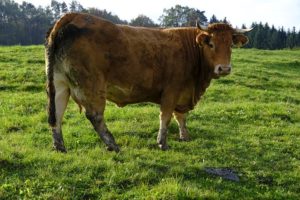
Consuming cow dung
In some places and several cities in India this has been administered as an antidote with a claim that it boosts our immune system and kills the virus. There have been instances where cow urine has been sprinkled on some areas as a disinfectant of sorts.
Quick safety tips:
1. Washing hands with soap for 20 seconds
2. Using hand sanitisers from time to time when you are outdoors.
3. Contact areas that have to be surface disinfected — public spaces like hospitals, malls, theatres.
4. Avoid meetings, avoid crowded places and large gatherings.
P.s. – Stay home and stay safe.
